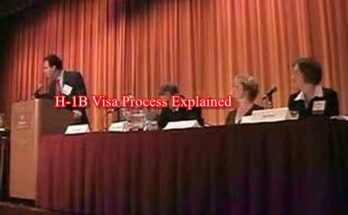To make it very clear on this Role of a Wrongful Death Attorney; Here are things we should have in mind today. The sudden loss of a loved one is one of the most devastating experiences anyone can endure. When that loss occurs due to the negligence or wrongful actions of another person, the pain can be even more overwhelming. In such cases, the law provides a way for the deceased’s family to seek justice and compensation through a wrongful death claim.
Wrongful Death Attorney
However, navigating the legal complexities of a wrongful death case can be challenging, especially for those who are unfamiliar with the legal system. This is where a wrongful death attorney comes into play.
A wrongful death attorney is a specialized legal professional who helps families of the deceased seek justice and compensation for their loss. This guide will provide a comprehensive overview of what a wrongful death attorney does, the types of cases they handle, the legal process involved in filing a wrongful death claim, and how to choose the right attorney for your case. By the end of this guide, you will have a solid understanding of the role of a wrongful death attorney and the importance of seeking legal assistance in such tragic circumstances.
What is Wrongful Death?
Before diving into the role of a wrongful death attorney, it is important to understand what wrongful death means. Wrongful death occurs when a person dies as a result of the negligent, reckless, or intentional actions of another individual or entity. Unlike criminal cases, which are pursued by the state and can result in penalties like imprisonment or fines, wrongful death cases are civil lawsuits filed by the family members or representatives of the deceased. The primary purpose of a wrongful death lawsuit is to seek financial compensation for the losses suffered by the deceased’s family.
The Role of a Wrongful Death Attorney
A wrongful death attorney is a lawyer who specializes in representing the families of individuals who have died due to the wrongful actions of others. Their primary goal is to help the family obtain compensation for their losses, which can include medical expenses, funeral costs, lost wages, loss of companionship, and emotional distress. Here are some of the key responsibilities and tasks that a wrongful death attorney typically handles:
1. Case Evaluation and Investigation
One of the first tasks a wrongful death attorney will undertake is evaluating the case to determine whether it has legal merit. This involves reviewing the circumstances surrounding the death, gathering evidence, and assessing whether there is a viable legal claim. The attorney will investigate the incident in detail, which may involve interviewing witnesses, reviewing medical records, analyzing police reports, and consulting with experts in relevant fields.
2. Legal Advice and Guidance
Navigating the legal system can be overwhelming, especially for those who are grieving the loss of a loved one. A wrongful death attorney provides the family with legal advice and guidance throughout the process. They explain the legal options available, help the family understand their rights, and advise on the best course of action. The attorney’s goal is to ensure that the family makes informed decisions at every stage of the case.
3. Filing the Wrongful Death Claim
Once the attorney has determined that there is a valid claim, they will file a wrongful death lawsuit on behalf of the deceased’s family. This involves drafting and submitting the necessary legal documents to the court. The attorney will ensure that the lawsuit is filed within the statute of limitations, which is the time frame within which a wrongful death claim must be filed. If the lawsuit is not filed within this period, the family may lose their right to seek compensation.
4. Negotiating with Insurance Companies
In many wrongful death cases, the responsible party’s insurance company will be involved. Insurance companies often try to settle claims quickly and for as little money as possible. A wrongful death attorney will handle all communications and negotiations with the insurance company on behalf of the family. The attorney’s goal is to secure a fair settlement that adequately compensates the family for their losses. If the insurance company refuses to offer a reasonable settlement, the attorney may recommend taking the case to trial.
5. Representation in Court
If the case goes to trial, the wrongful death attorney will represent the family in court. This involves presenting evidence, questioning witnesses, and making legal arguments to the judge and jury. The attorney will work to prove that the defendant’s actions were negligent or wrongful and that these actions directly caused the death of the deceased. The attorney will also seek to demonstrate the extent of the family’s losses in order to secure the maximum possible compensation.
6. Calculating Damages
One of the most important aspects of a wrongful death case is determining the amount of compensation the family is entitled to receive. This is known as “damages.” A wrongful death attorney will calculate both economic and non-economic damages. Economic damages include tangible losses such as medical expenses, funeral costs, and lost income. Non-economic damages are more subjective and include things like pain and suffering, loss of companionship, and emotional distress. The attorney will use various methods and expert testimony to quantify these damages.
7. Providing Emotional Support
While a wrongful death attorney’s primary role is to handle the legal aspects of the case, they also provide emotional support to the grieving family. The attorney understands the emotional toll that the loss of a loved one can take and strives to be a source of comfort and reassurance throughout the legal process. This support can be invaluable as the family navigates both the legal and emotional challenges of a wrongful death case.
Types of Wrongful Death Cases
Wrongful death cases can arise from a variety of situations where a person’s death is caused by the wrongful actions of another. Some of the most common types of wrongful death cases include:
1. Car Accidents
Car accidents are one of the leading causes of wrongful death claims. When a person dies in a car accident caused by another driver’s negligence, such as speeding, distracted driving, or driving under the influence, the family may have grounds to file a wrongful death lawsuit.
2. Medical Malpractice
Medical malpractice occurs when a healthcare provider, such as a doctor or nurse, fails to provide the appropriate standard of care, resulting in the death of a patient. Examples of medical malpractice include misdiagnosis, surgical errors, medication mistakes, and failure to diagnose a serious condition.
3. Workplace Accidents
Workplace accidents can result in wrongful death claims, particularly in industries such as construction, manufacturing, and transportation, where the risk of injury is higher. If an employer’s negligence, such as failing to provide a safe working environment, leads to the death of an employee, the family may seek compensation through a wrongful death lawsuit.
4. Defective Products
Manufacturers have a responsibility to ensure that their products are safe for consumers. When a defective product, such as a faulty vehicle, dangerous medication, or malfunctioning machinery, causes the death of a person, the manufacturer or distributor may be held liable in a wrongful death claim.
5. Premises Liability
Premises liability refers to the responsibility of property owners to maintain a safe environment for visitors. If a person dies as a result of hazardous conditions on someone else’s property, such as a slip and fall accident or exposure to toxic substances, the property owner may be held liable in a wrongful death lawsuit.
6. Criminal Acts
In cases where a person dies as a result of a criminal act, such as assault, robbery, or murder, the family may file a wrongful death claim against the perpetrator. While criminal charges may be pursued by the state, a wrongful death lawsuit allows the family to seek financial compensation for their loss.
The Legal Process of a Wrongful Death Claim
Filing a wrongful death claim involves several steps, each of which is crucial to the success of the case. The process can be complex and time-consuming, but a skilled wrongful death attorney will guide the family through each stage. Here is an overview of the legal process involved in a wrongful death claim:
1. Initial Consultation
The first step in the process is the initial consultation with a wrongful death attorney. During this meeting, the attorney will listen to the family’s account of the incident, ask questions to gather more information, and provide an initial assessment of the case. The attorney will also explain the legal process and discuss the potential outcomes of the case.
2. Investigation and Evidence Gathering
After agreeing to represent the family, the attorney will begin a thorough investigation of the case. This involves gathering evidence to support the wrongful death claim. The attorney may collect medical records, police reports, witness statements, surveillance footage, and expert testimony. The goal is to build a strong case that demonstrates the defendant’s liability and the extent of the family’s losses.
3. Filing the Lawsuit
Once the investigation is complete, the attorney will file a wrongful death lawsuit on behalf of the family. This involves drafting a formal complaint that outlines the legal basis for the claim, the facts of the case, and the damages being sought. The complaint is then filed with the appropriate court, and the defendant is served with a copy of the lawsuit.
4. Discovery Process
The discovery process is a pre-trial phase in which both parties exchange information and evidence related to the case. This may include written questions (interrogatories), requests for documents, and depositions (sworn statements taken under oath). The purpose of discovery is to allow both sides to prepare their cases and to uncover any relevant facts that may impact the outcome of the trial.
5. Settlement Negotiations
In many wrongful death cases, the parties may attempt to reach a settlement before the case goes to trial. Settlement negotiations involve discussions between the plaintiff’s attorney and the defendant’s legal team or insurance company. The goal is to reach an agreement on the amount of compensation the family will receive. If a fair settlement is reached, the case can be resolved without the need for a trial. However, if the parties are unable to agree on a settlement, the case will proceed to trial.
6. Trial
If the case goes to trial, the wrongful death attorney will represent the family in court. The trial process involves presenting evidence, calling witnesses, and making legal arguments to the judge and jury. The attorney will work to prove that the defendant’s actions were wrongful and that these actions directly caused the death of the deceased. The jury will then decide whether the defendant is liable and, if so, how much compensation the family should receive.
7. Appeals
If either party is dissatisfied with the outcome of the trial, they may choose to appeal the decision. An appeal involves asking a higher court to review the case and determine whether any legal errors were made during the trial. If the appellate court finds that errors occurred, it may overturn the verdict or order a new trial.
How to Choose the Right Wrongful Death Attorney
Choosing the right wrongful death attorney is a critical decision that can significantly impact the outcome of the case. Here are some factors to consider when selecting an attorney:
1. Experience and Expertise
It is important to choose an attorney who has extensive experience handling wrongful death cases. An experienced attorney will have a deep understanding of the legal complexities involved and will know how to navigate the challenges that may arise. Look for an attorney who specializes in wrongful death law and has a proven track record of success in similar cases.
2. Reputation and Reviews
The reputation of the attorney is another important factor to consider. Look for reviews and testimonials from previous clients to get a sense of the attorney’s professionalism, communication skills, and effectiveness. An attorney with a strong reputation in the legal community is more likely to provide high-quality representation.
3. Communication and Accessibility
The attorney-client relationship is built on trust and communication. Choose an attorney who is responsive, accessible, and willing to take the time to explain the legal process and answer any questions you may have. The attorney should be someone you feel comfortable working with and who understands your needs and concerns.
4. Fee Structure
Before hiring a wrongful death attorney, it is important to understand their fee structure. Many wrongful death attorneys work on a contingency fee basis, which means they only get paid if they win the case. This fee is typically a percentage of the compensation awarded. Make sure you discuss the fee arrangement upfront and understand any additional costs that may be involved.
5. Personal Connection
Finally, consider the personal connection you feel with the attorney. Wrongful death cases can be emotionally taxing, and it is important to work with someone who is compassionate and empathetic. A good attorney will not only be a skilled legal advocate but also a supportive partner during a difficult time.
Conclusion
Losing a loved one due to the wrongful actions of another person is a heartbreaking experience that no family should have to endure. While no amount of money can replace the loss of a loved one, a wrongful death attorney can help the family seek justice and obtain the financial compensation they need to move forward. By understanding the role of a wrongful death attorney, the types of cases they handle, and the legal process involved, families can make informed decisions and choose the right attorney to represent them.
If you find yourself in the unfortunate position of needing a wrongful death attorney, remember that you do not have to navigate this difficult journey alone. A compassionate and experienced attorney can provide the legal guidance and emotional support you need to seek justice for your loved one and secure the compensation you deserve.




